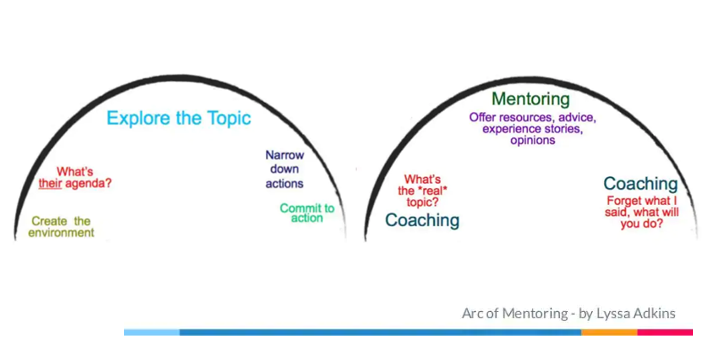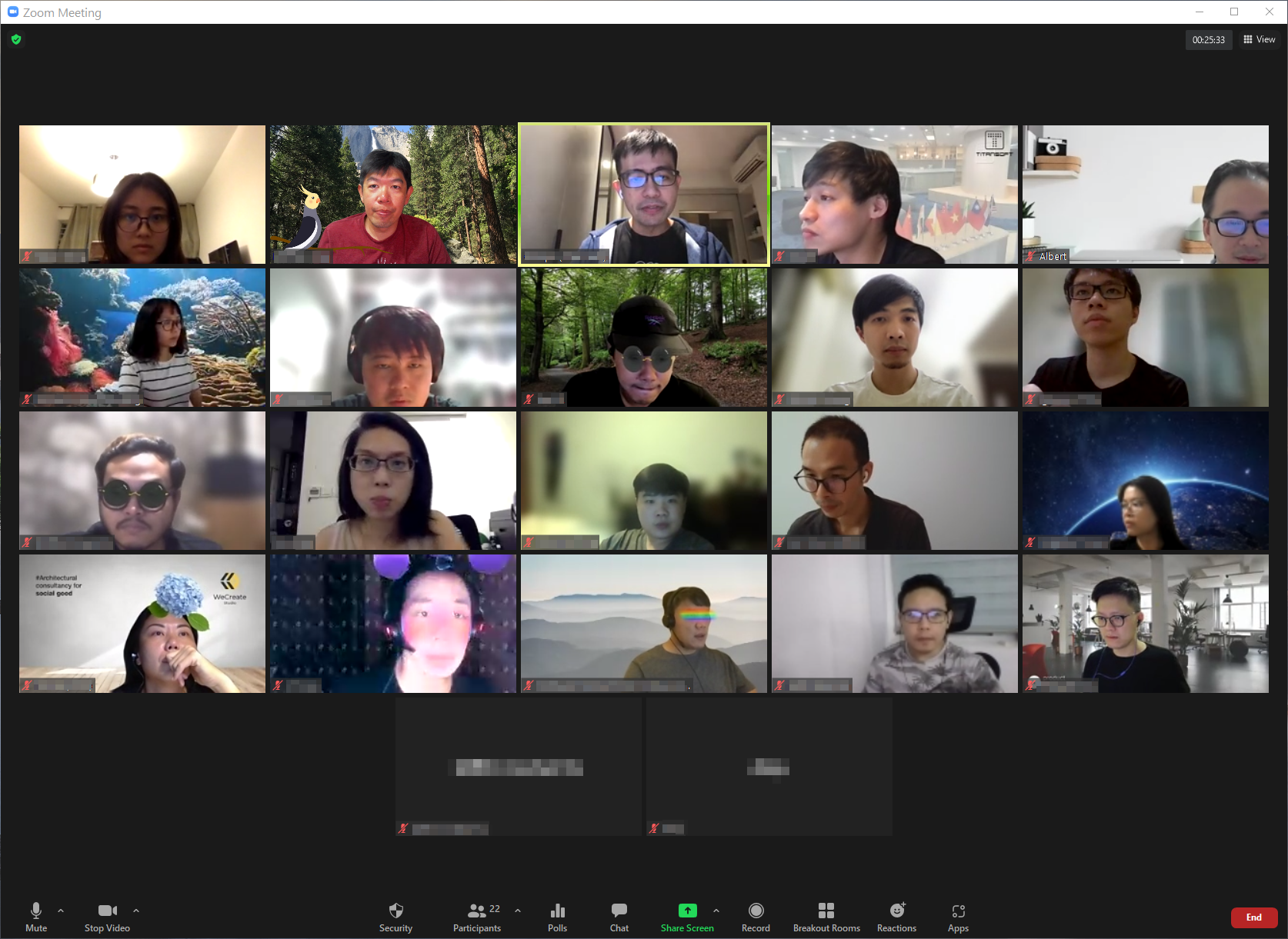PTL #6 - Mentorship
“How might we learn to be a great mentor?”

What we learnt:
- 💭What mentoring is
- 🛠 Understand the Principles of Meaningful Mentoring
- 🔍Discover what you can offer as a mentor
What is Mentoring?
Mentoring is learning relationship - The primary purpose is to drive personal growth; building skills, knowledge and understanding. While mentors may use coaching skills, their role is usually wider beyond learning specific competencies or tasks. Mentors may offer resources, advice, experiences, knowledge and opinions to nurture the development of a less experienced mentee.
Your coach is like a mirror
- Asking powerful questions
- Helping you discover potential you didn’t know you had inside you
Your mentor is like a partner
- Walking together with you, on a similar path
- Helping you with knowledge and perspectives that may be new to you
What type of mentor can I be?
Career mentor
- Guide mentees on career goals and help them work through career transitions
- Usually seniors in a similar industry and/or discipline
Peer mentor
- Offer on-the-job training for new employees
- Help mentees settle into a new role, to learn new skills, processes and practices
Life mentor
- Use one’s past experience to encourage and support their mentees for their careers and/or personal growth
- Aren’t always professional coaches or teachers– could be a family member, friend, or colleague
Even if you’re someone who’s just starting out, you can still share your knowledge and experiences with someone else!
Personal Journey Map
Tool to help you discover what you can offer as a mentor.
Some reflections you can use when preparing the journey map:
- What has my life been so far?
- What are the turning points that have shaped or shifted me?
- What have I been through that I have empathy and authority to speak about?
- What value can I bring to other people and teams?
Mentoring Conversation and Roles

Mentor wears different hats to help the mentee.
- Coach : Mentors will ask probing questions, provide honest and direct feedback, and give insights into the mind of the mentee.
- Devil’s advocate : Mentors will challenge the mentee and get them out of their comfort zone. That means playing the opposite side, and have the mentee learn to be ok with discomfort.
- Support System : Mentors a huge fans of the mentees. They celebrate the big and small wins, show support when mentees face setbacks, and consistently provide encouragement.
- Resource : Mentors have countless resources from tools to people to jobs. The mentor is inclined to provide the relevant tools & learning lessons, introduce their network & connections.
Principles of Meaningful Mentoring - How can I be a better mentor?
Hand out fishing rods, not fish
This means to get the mentee to find the answer, not dole out advice.
- Delay giving advice. Get mentee & reflect more.
- Share anecdotes, broad principles, of different solutions. Get mentee to tell you how it applies their context and how they’d like to tailor it.
Encourage emotions to be explored
To really address challenges and begin to grow, it’s key to recognise the feelings that emerge are valid, and explore them if permission is given.
- Give space to acknowledge the difficult emotions. Mentor to share their past failures, Mentee to share their difficult emotions
- Take the time to understand each others career paths, goals, hopes, fears, and lifestyle.
Help the mentee step back and see the bigger why
Check far blind spots & help them see through others perspectives.
- Play out scenarios to practice difficult conversations: “How might other stakeholders feel about or view your idea?”
- Go back to the beginning, such the purpose behind problem or situation. “Why are you here? Why does your company exist?”
Keep the mentoring relationship mutually benefitting
Keeping both parties energized about the relationship depends on mutual learning. Make sure mentors are benefiting too!
- Mentors are proactive in seeing the opportunity to learn from their mentees & glean what’s relevant to their own work.
- Mentors intuition in dealing with situations: Their own relationships their boss & reports; Industry trends and intelligence
- Mentees to ask mentors what they can contribute to them: “What excites you about I’m working on?”
Acknowledge and celebrate small wins
This builds your mentee’s confidence and keep them motivated.
- Show love and appreciation for mentee’s attempts, success or fail.
- In work setting, mentor can publicly recognise the mentee
